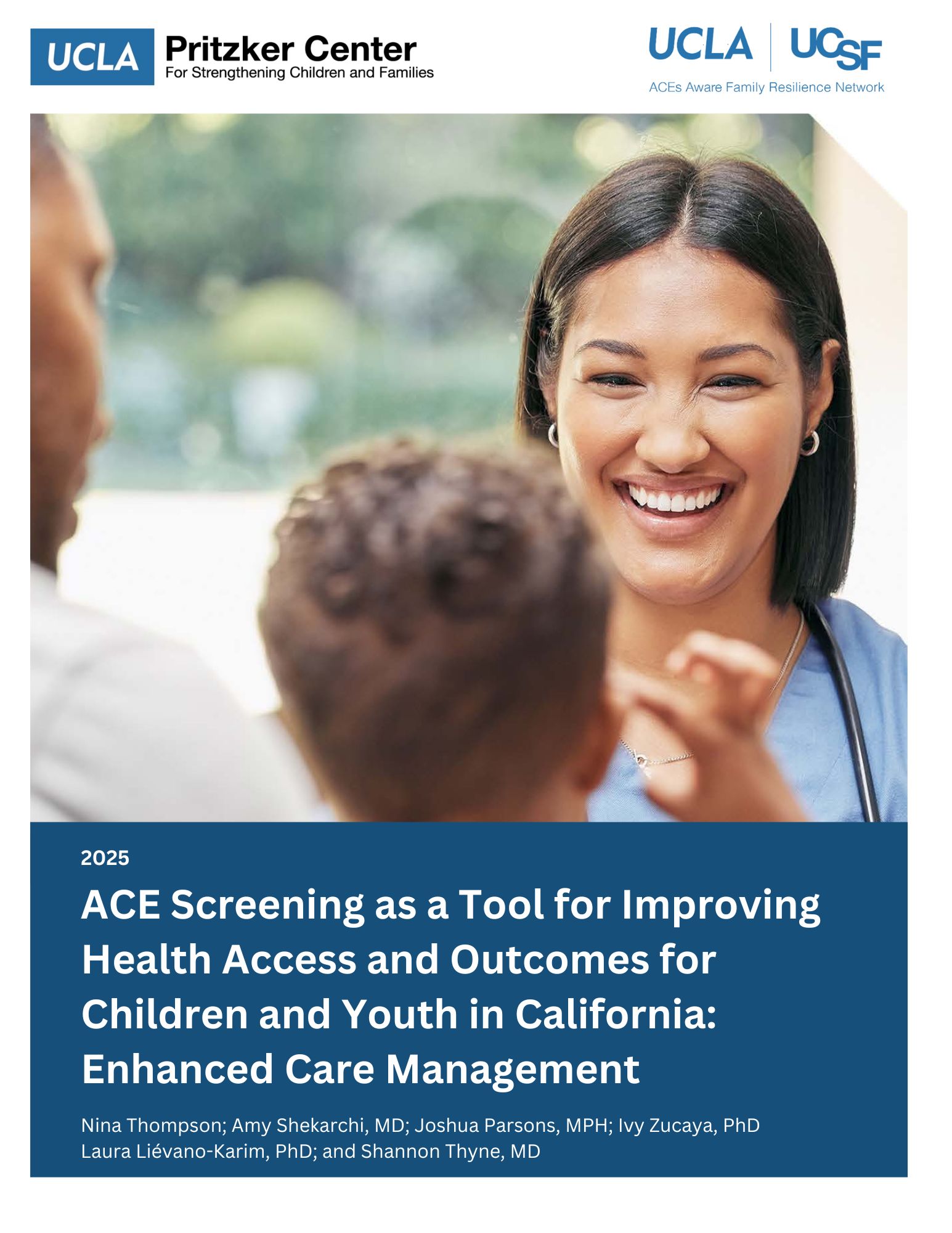ACE Screening as a Tool for Improving Health Access and Outcomes for Children and Youth in California
Enhanced Care Management

Emergent research suggests that adverse childhood experiences (ACE) screening and response activities – such as patient education or linkage to community resources, social services, and specialty medical services – can help mitigate the impact of toxic stress. In addition, identification of those with the highest risk for toxic stress can uncover unmet needs and provide improved access to services.
California launched ACEs Aware in 2019 to support training and screening activities for identifying and responding to ACEs. Uptake has been steady, with over 20,000 Medi-Cal providers certified to bill for screening activities.
Enhanced Care Management (ECM) is a key component of the state’s Medi-Cal transformation. This program aims to serve Medi-Cal managed care members with the highest medical and social needs by providing improved care coordination, facilitating access to community resources, addressing social determinants of health, improving health outcomes, and decreasing inappropriate utilization and duplication of health care services. When pediatric patients are screened and receive an ACE score of 4 or greater, they become eligible for specialty mental health evaluation services and Enhanced Care Management.
To determine how ACE scores impact the identification of eligibility for specialty mental health and ECM services, we examined ACE scores and other medical and social diagnoses within the ECM “populations of focus” in a managed care Medi-Cal setting in Los Angeles County. This analysis revealed that medical record queries for specific medical and social conditions did not generate adequate outreach lists for ECM enrollment. However, expanding the query to include ACE scores of 4 and higher more than doubled the number of children and youth identified for ECM outreach.
Key Takeaways
• Screening California’s children and youth for adverse childhood experiences (ACEs) allows for early identification of toxic stress risk, supporting referrals for those at high risk to CalAIM programs, such as ECM, before downstream negative impacts of toxic stress develop.
• Opportunities exist to enhance partnerships between Medi-Cal managed care organizations (MCOs) and affiliated clinical practice groups to leverage ECM and other CalAIM initiatives as part of the clinical response for children and youth at risk for toxic stress.


Recommendations
1. Policymakers can support MCOs and their affiliated practice groups to amplify and increase focus on activities that identify Medi-Cal recipients who are eligible for CalAIM initiatives designed to reduce gaps in care for high risk populations – including ECM, specialty and non-specialty mental health services, community health worker services, doula services, and dyadic care.
2. Opportunities exist to enhance partnerships between Medi-Cal managed care organizations (MCOs) and affiliated clinical practice groups to leverage ECM and other CalAIM initiatives as part of the clinical response for children and youth at risk for toxic stress.
a. Identification: Increase provider training for ACE screening; expand ACE screening in areas with highest health disparities; and facilitate timely reimbursement for screens to support ongoing identification of high risk children and youth who may be eligible for CalAIM programs.
b. Outreach: Collaborate with practice groups to develop formal protocols for outreach and enrollment in ECM and other funded services.
c. Implementation: Continue to simplify and streamline pathways for ECM and other CalAIM service providers (community health workers, doulas, and non-specialty mental health providers) to engage in reimbursable activities supporting eligible children and youth.
This work was funded by the UCLA/UCSF ACEs Aware Family Resilience Network (UCAAN) and Olive View-UCLA Education and Research Institute.

